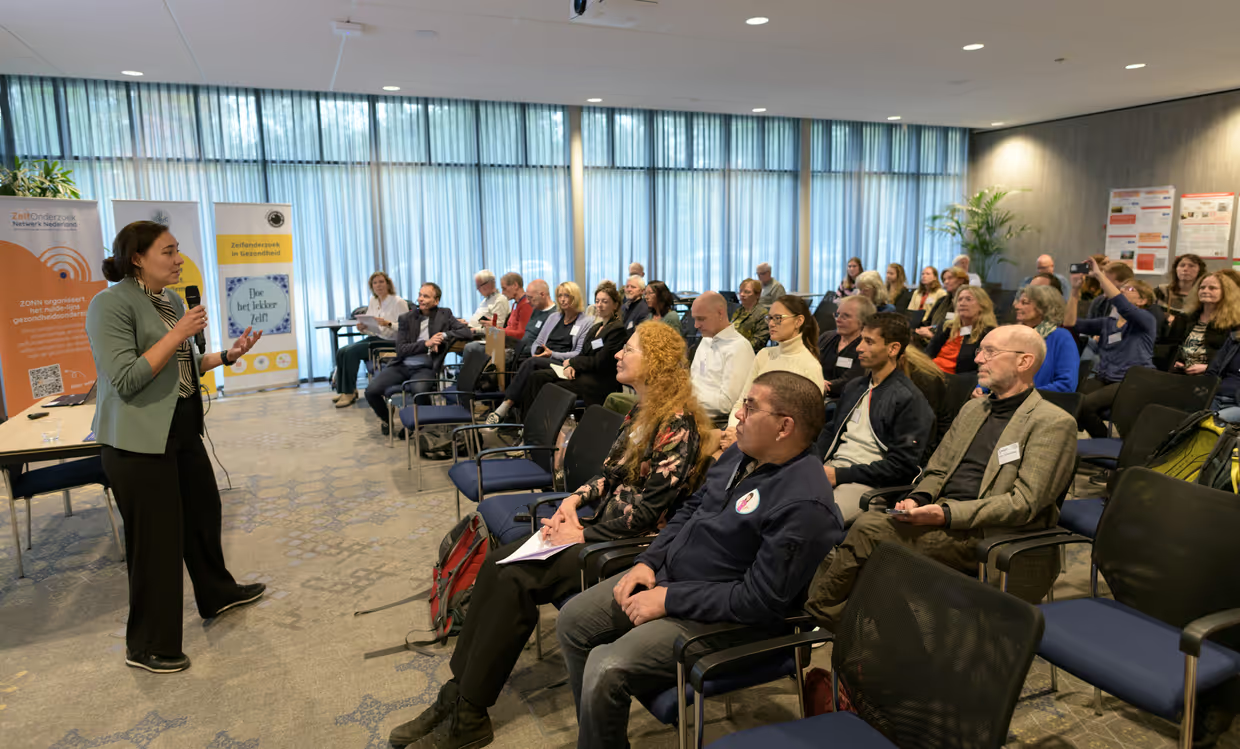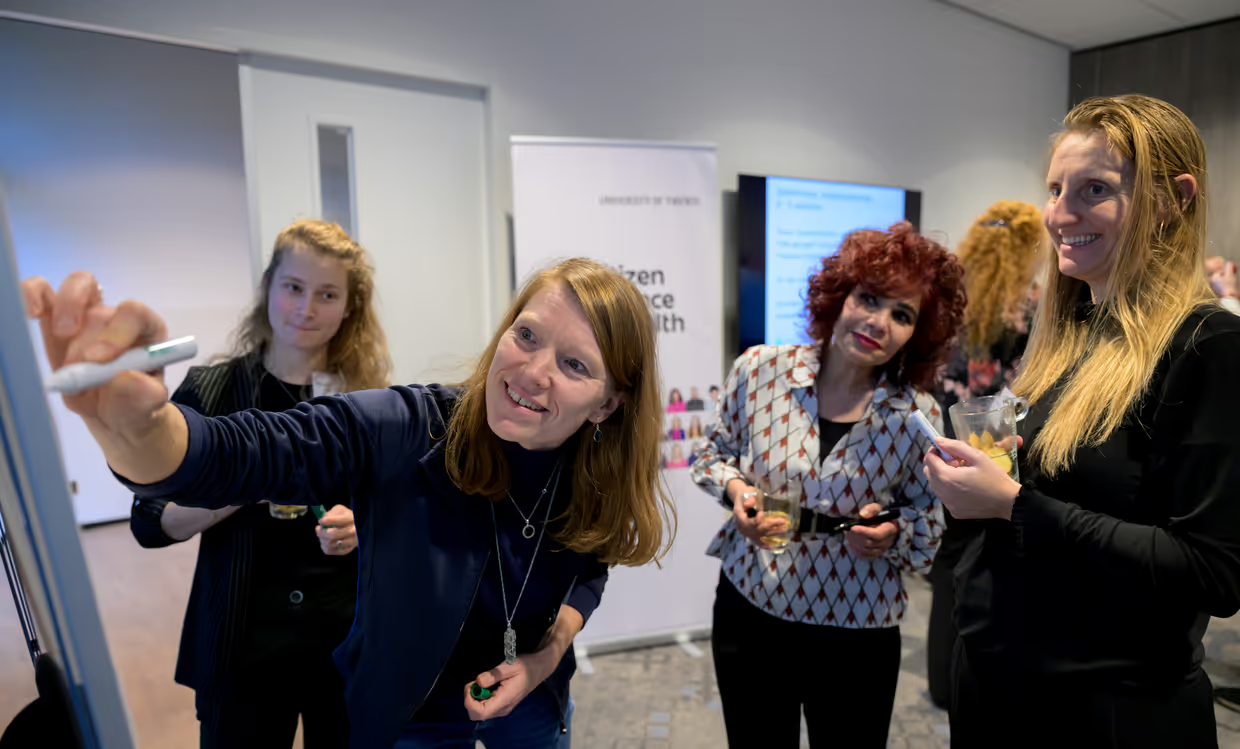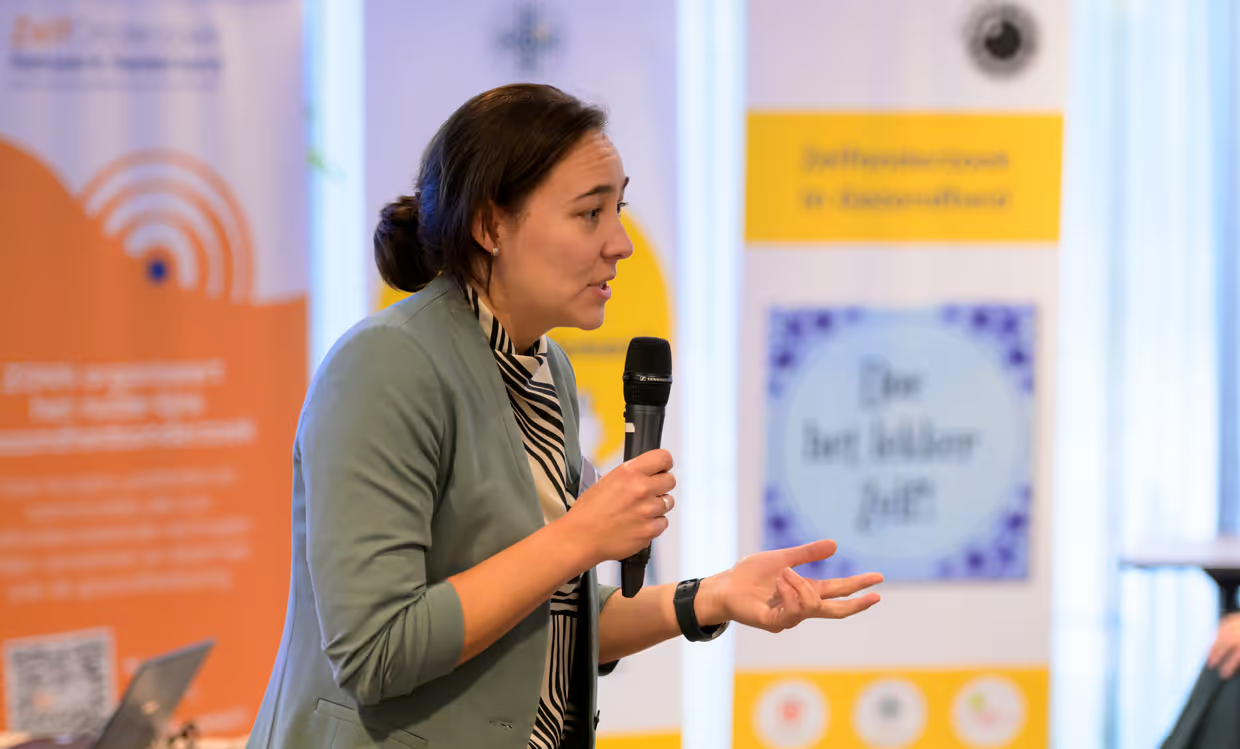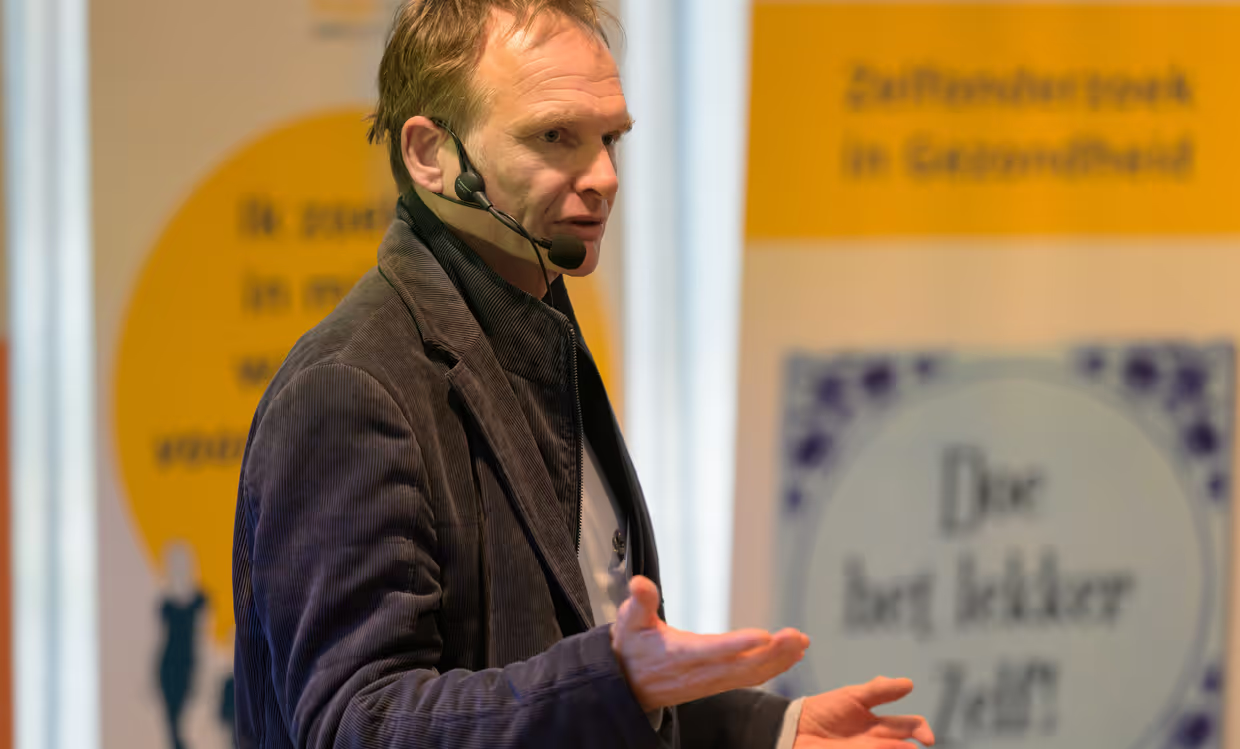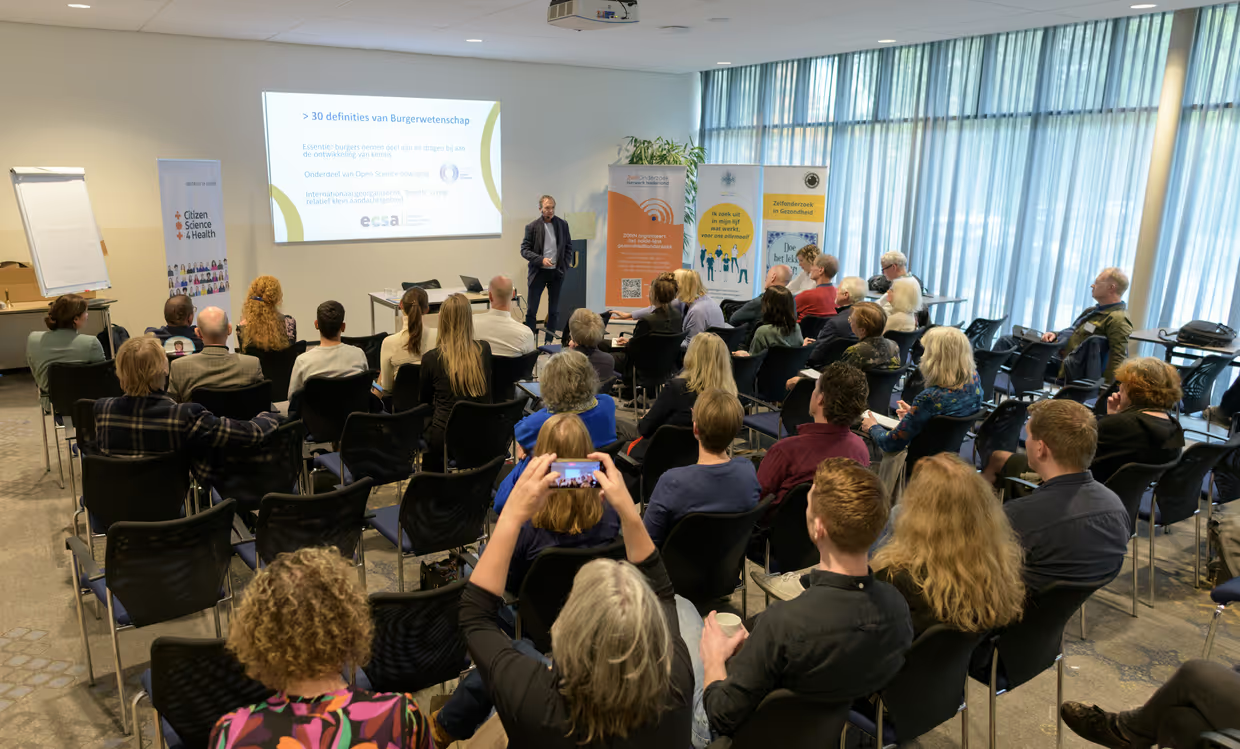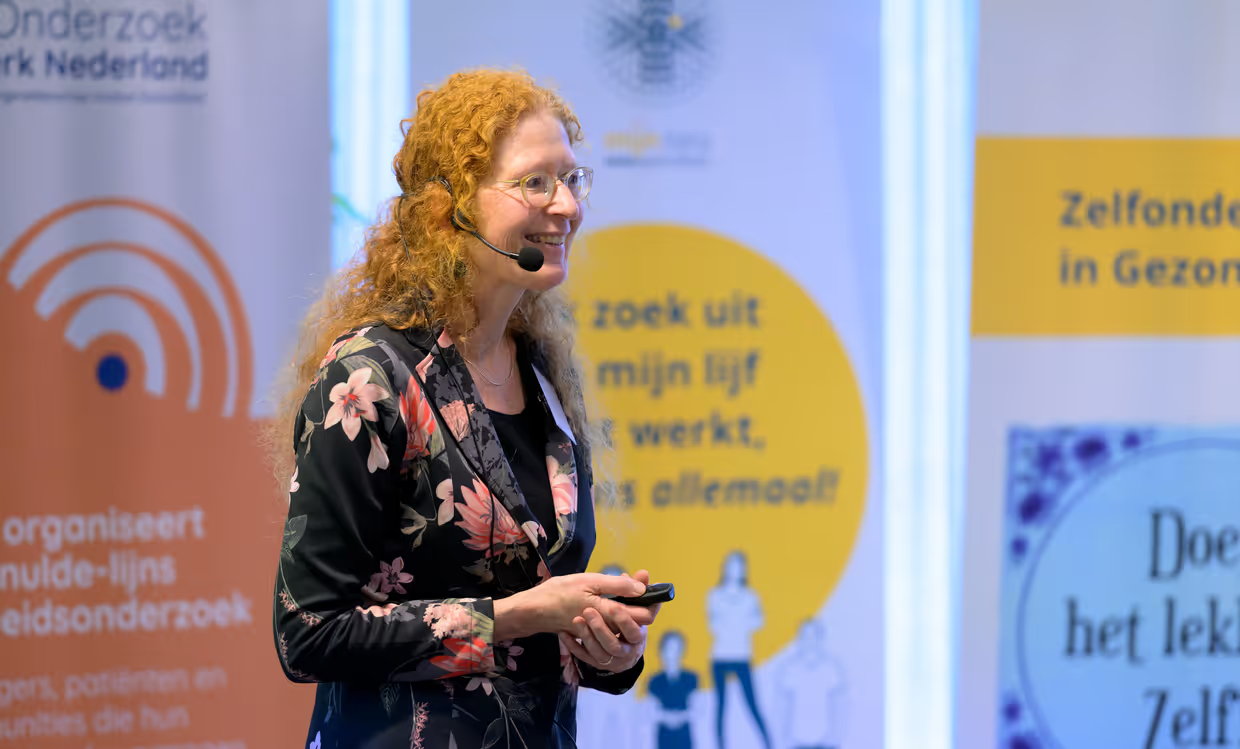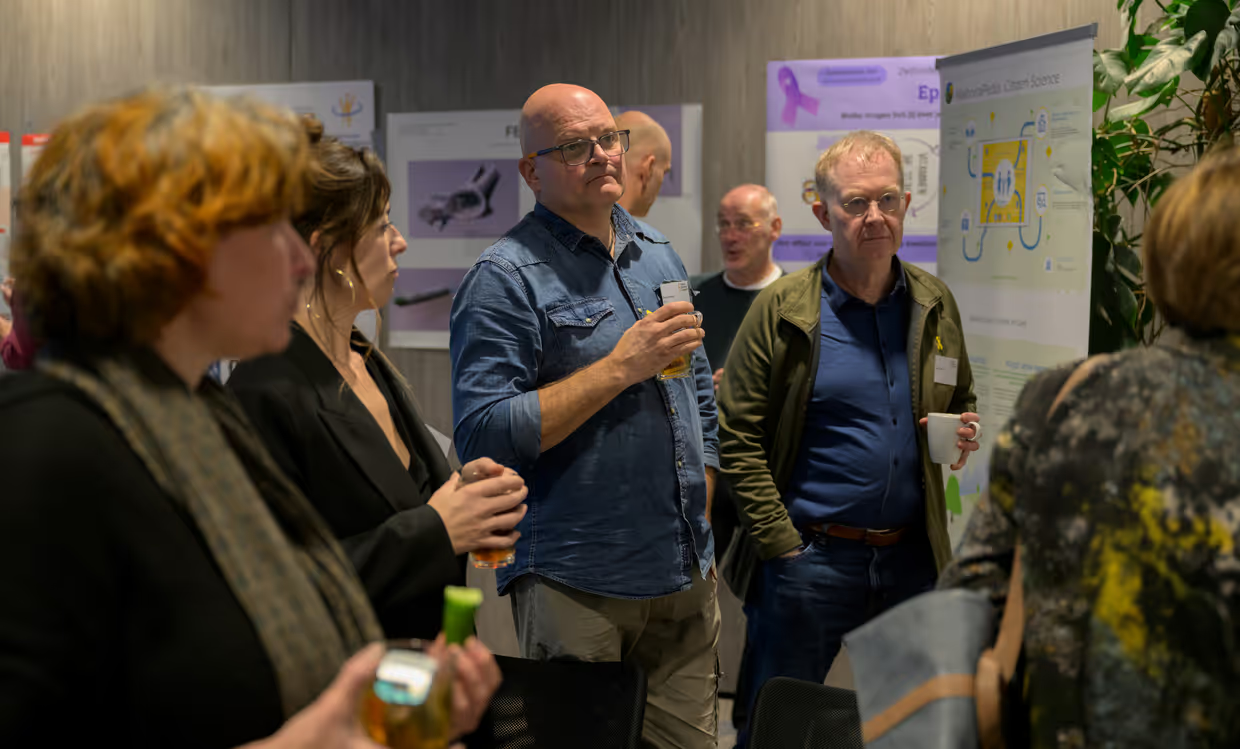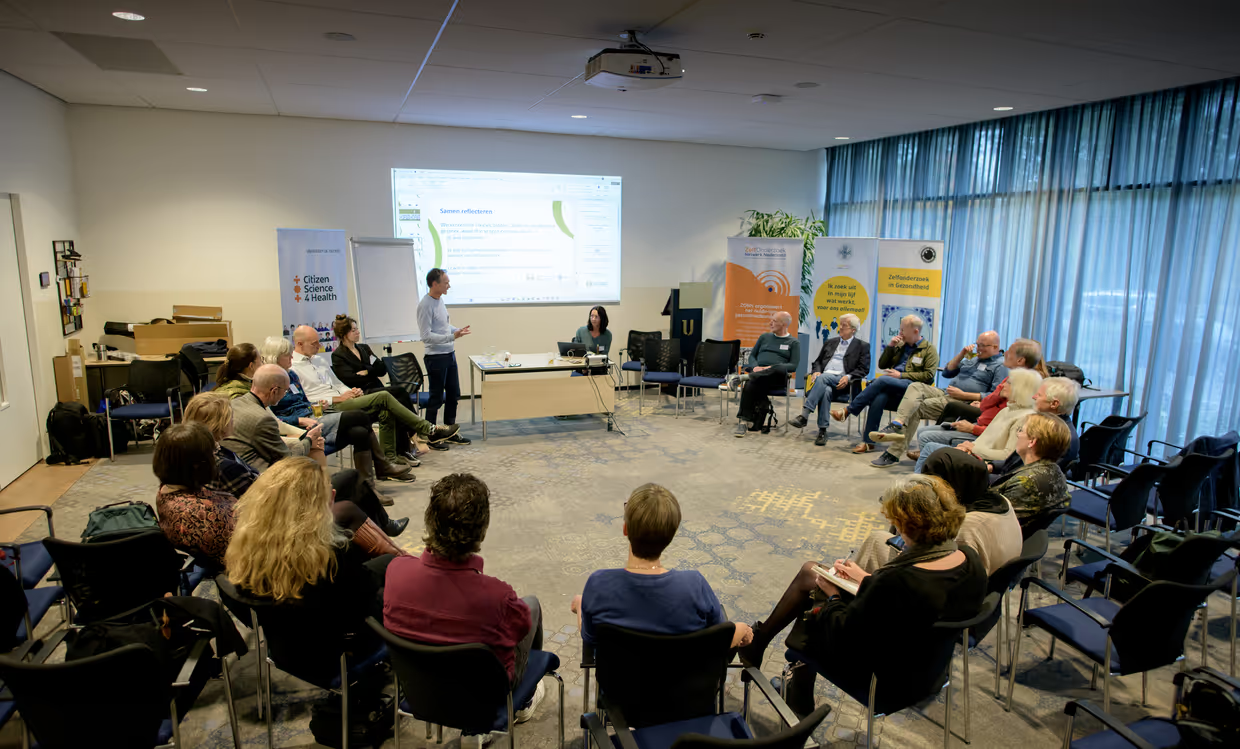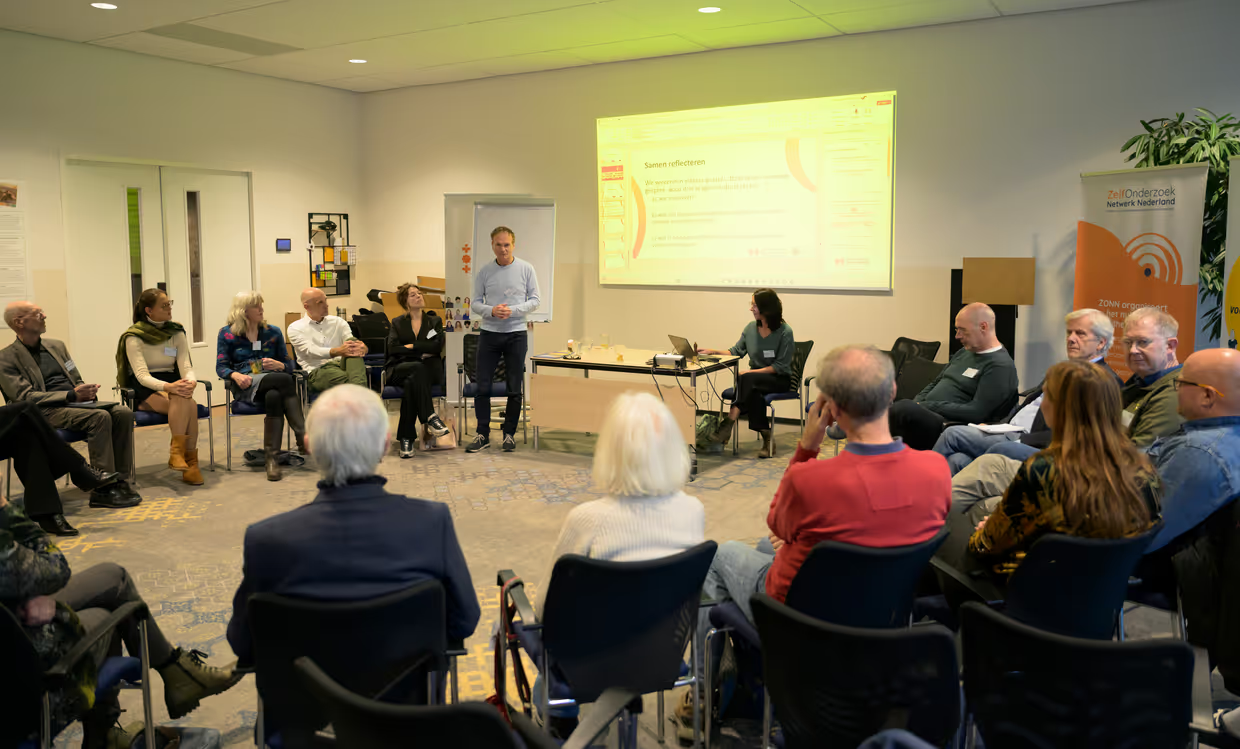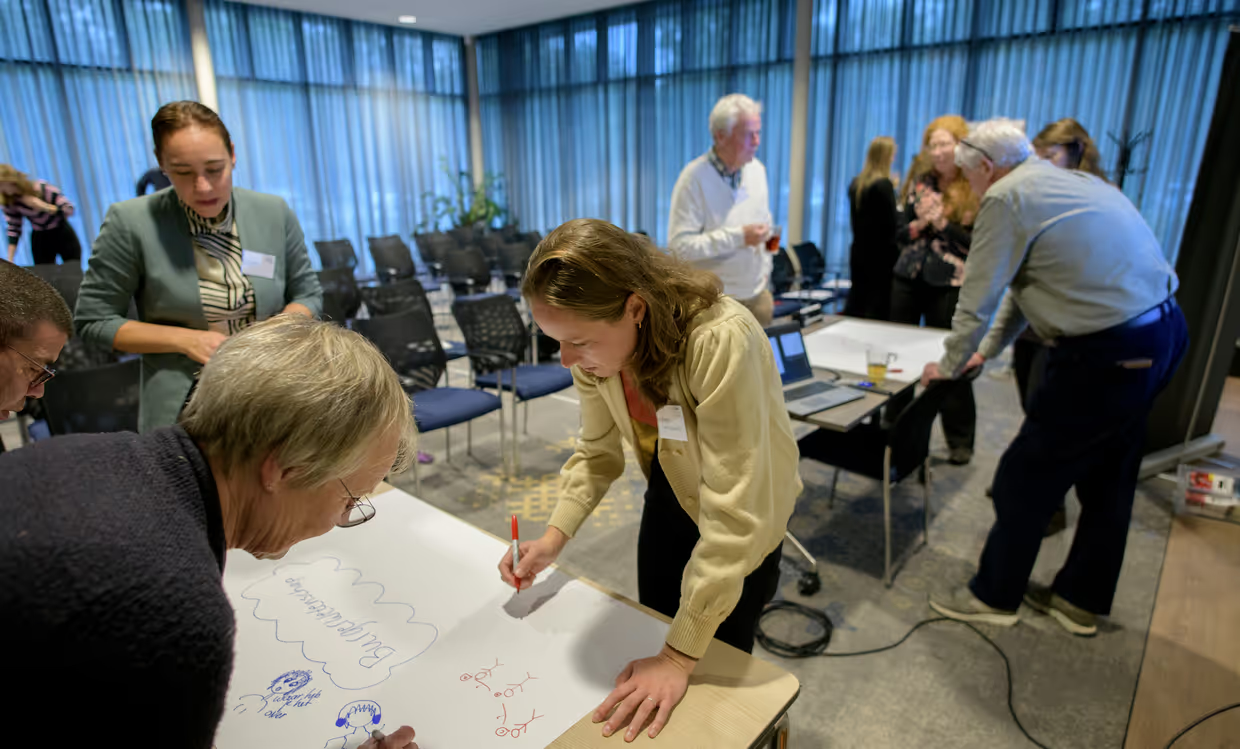The first Citizen Science 4 Health conference recently kicked off at the University of Twente. This captivating and innovative conference began with a special day focused on Dutch-speaking citizens, organised by Radboud UMC (with Radboud Fund as a sponsor), University of Twente, and StichtingMijn Data Onze Gezondheid. The event welcomed a diverse group of participants, including citizens, researchers, patient associations, and policymakers. Together, they listened to renowned speakers, Gaston Remmers and Annemarie Wagemakers, both of whom also led in-depth sessions.
Gaston Remmers is a key figure involved in various initiatives within Citizen Science 4 Health. He is the director of the ‘Stichting Mijn Data Onze Gezondheid’ and coordinator of the Self-Research Network Netherlands (ZONN), a platform for citizen science in health. Bringing his expertise as an agro-ecologist, sociologist, researcher, and patient with lifelong experience connecting insights and data from 'laypeople' with those of experts, Gaston shared his personal encounter with cancer and other conditions, motivating him to use that experience to strengthen the position of citizens and patients in health research. Additionally, he served as the chair of the Citizen Science 4 Health working group for two years. This working group, part of the ECSA - the European Citizen Science Association, was co-founded by him. Gaston spoke about the essence of citizen science, the diversity of citizen science projects in the health domain, and global developments in this field. He introduced the first online course in Self-Research for citizens, set to begin in January 2024. Gaston also advocated for the development of the 'zeroth line of health research' to highlight the fundamental contribution of citizens and patients to knowledge development.
Annemarie Wagemakers, personal professor of Participation and Health Promotion, Chair Group Health and Society, Wageningen University, informed participants about citizen science from a scientific perspective. Her presentation focused on public and personal health, discussing the emergence of a participatory society after the introduction of ‘Wet maatschappelijke ondersteuning’, and sharing examples of successful projects where citizen science has had an impact. For example, citizen scientists gain more insight into health, take action to promote health in the community, and enhance their health skills. Citizen science also contributes to local and relevant information for policy.
One of the two in-depth sessions, titled "Citizen Science for Individual Health and Well-being," also marked the first public and national meeting of the Self-Research Network Netherlands. It was led by Gaston and Martijn de Groot (Manager Health Innovation Lab, Radboud UMC). This session focused on (organizations of) patients and citizens applying citizen science to promote individual health and well-being. The session included interactive presentations in the form of posters, where participants explored each other's work. This was followed by a collective reflection on noteworthy aspects and possible ways to further develop self-research. Questions addressed during the reflection included: What stimulates and inspires us? What shared challenges do we see in various forms of self-research? And what elements are needed to elevate self-research to a higher level? There was a consensus on the need for a better infrastructure for self-research; the session outcomes will be used to take the next step in this direction.
Annemarie led the second in-depth session titled "Citizen Science and Public Health," along with Kirsten Bevelander (Senior researcher, Radboud UMC). This session was intended for both experienced and inexperienced participants in the field of citizen science. During the engaging workshop, citizens collaborated with researchers, exchanged experiences, and shared insights on different methods and forms of collaboration. Participants were introduced to 'appreciative interviewing' and the 'photo voice' method. Appreciative interviewing involves asking appreciative (positively open) questions that stimulate creativity and engagement in participants to successfully implement actions, initiatives, and changes. Participants were asked in advance to submit photos of what they understand as a 'healthy living environment.' These photos served as a basis for practicing appreciative interviewing during the workshop. The interviewee chose a photo that resonated most with their idea of a healthy living environment, and the interviewer then asked appreciative questions about the photo. This led to beautiful and open conversations that ultimately shaped an ideal future scenario. In the second part, participants collectively visualised challenges within the field of citizen science by creating drawings. This activity provided insights into what had already been undertaken in citizen science and where opportunities for further development lay, leading to discussions. This also resulted in statements where participants could indicate whether they agreed or not by standing on one side of a line on the ground, using the 'cross the line' method. This sparked meaningful conversations about participants' views on citizen science.
The day concluded with a collective reflection on the outcomes of the workshops by Martijn and Kirsten, where several actions were noted that participants can take to advance citizen science. This wrapped up an inspiring and educational day before transitioning to the opening of the international CS4H congress.

